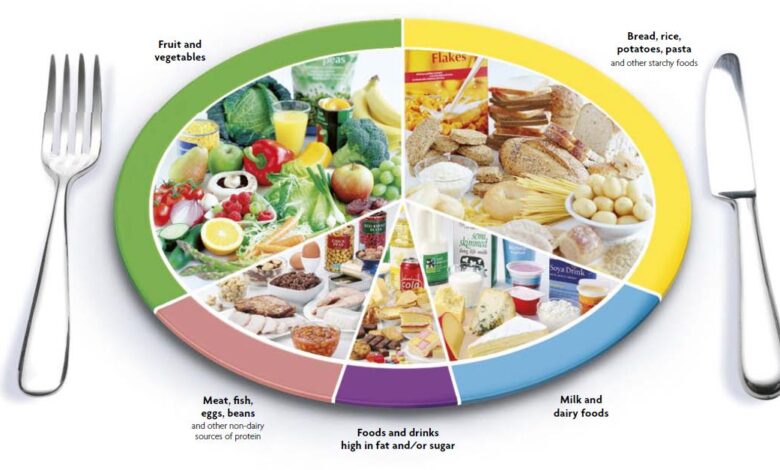The Nutritional Components of a Healthy Diet

Maintaining good health is intrinsically linked to the quality of our daily diet. A healthy diet goes beyond mere calorie counting; it’s about nourishing our bodies with a diverse array of essential nutrients. In this comprehensive guide, we’ll explore the key nutritional components that form the foundation of a healthy diet, presented in informative bullet points to empower you on your journey to wellness.
1. Foundational Whole Foods:
- Variety of Colors: Build your meals around a diverse array of fruits and vegetables of different colors, providing a spectrum of vitamins, minerals, and antioxidants.
- Whole Grains: Opt for whole grains such as quinoa, brown rice, and oats for increased fiber, promoting digestive health and sustained energy release.
2. Balanced Macronutrients:
- Proteins: Include lean sources of protein like poultry, fish, tofu, and legumes for muscle health and overall satiety.
- Healthy Fats: Embrace sources of healthy fats such as avocados, nuts, and olive oil to support brain function and heart health.
- Complex Carbohydrates: Incorporate complex carbohydrates from vegetables, fruits, and whole grains for sustained energy throughout the day.
3. Micro Nutrients for Vitality:
- Vitamins: Ensure an adequate intake of vitamins, including A, B, C, and D, through a varied diet to support immune function, metabolism, and overall well-being.
- Minerals: Incorporate minerals like iron, calcium, and magnesium for essential functions such as blood formation, bone health, and nerve function.
4. Proper Hydration:
- Water as the Primary Beverage: Prioritize water intake throughout the day for optimal hydration. Water is crucial for digestion, nutrient absorption, and overall bodily functions.
- Herbal Teas and Infusions: Enhance hydration with herbal teas and infusions for added flavor without added sugars.
5. Dietary Fiber for Digestive Health:
- Whole Plant Foods: Include a variety of whole plant foods, such as fruits, vegetables, legumes, and whole grains, to boost dietary fiber intake.
- Gut Health: Dietary fiber supports a healthy gut microbiome, aiding digestion and promoting regular bowel movements.
6. Limit Added Sugars and Processed Foods:
- Hidden Sugars: Be vigilant about hidden sugars in processed foods and beverages. Choose natural sources of sweetness from fruits to satisfy your sweet cravings.
- Minimize Processed Foods: Reduce the consumption of highly processed foods, opting for whole, nutrient-dense alternatives to minimize the intake of additives and preservatives.
7. Mindful Portion Control:
- Conscious Eating: Pay attention to portion sizes to prevent overeating. Listen to your body’s hunger and fullness cues for mindful and intuitive eating.
- Balanced Meals: Create balanced meals with appropriate portions of proteins, carbohydrates, and fats to ensure nutritional adequacy.
8. Source of Omega-3 Fatty Acids:
- Fatty Fish: Incorporate fatty fish such as salmon and mackerel for a rich source of omega-3 fatty acids, which support heart health and cognitive function.
- Plant-Based Alternatives: Explore plant-based sources of omega-3s, including chia seeds, flaxseeds, and walnuts.
9. Calcium-Rich Foods for Bone Health:
- Dairy or Alternatives: Ensure an adequate intake of calcium for bone health. Choose dairy products or fortified alternatives like almond or soy milk.
- Leafy Greens: Include leafy green vegetables like kale and broccoli as additional sources of calcium.
10. Moderation and Variety:
- Moderate Indulgences: Enjoy treats in moderation, allowing for a balanced and sustainable approach to a healthy diet.
- Culinary Diversity: Explore a variety of cuisines and cooking methods to maintain interest and ensure a broad range of nutrient intake.
Bonus Tips: Lifestyle and Well-Being:
- Regular Physical Activity: Complement a healthy diet with regular physical activity to enhance overall well-being.
- Adequate Sleep: Prioritize sufficient and quality sleep, as it plays a crucial role in metabolism, mood regulation, and overall health.
Conclusion:
A healthy diet is a holistic amalgamation of nutrient-rich foods, mindful eating habits, and a lifestyle that prioritizes overall well-being. By incorporating these nutritional components into your daily routine, you’re not just nourishing your body but also fostering a sustainable and vibrant way of life. Remember, the journey to a healthier you is a gradual and evolving process—embrace it with enthusiasm, savor the flavors of wholesome foods, and revel in the positive impact on your health and vitality.




